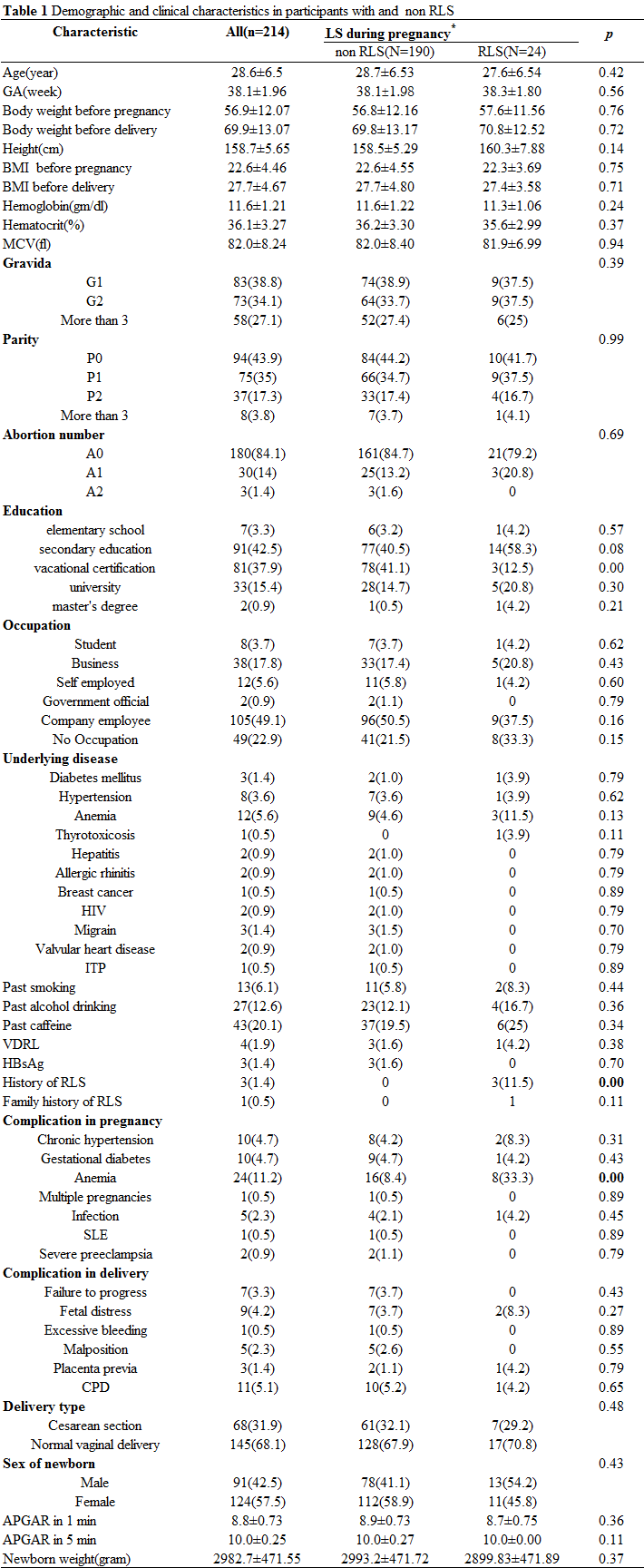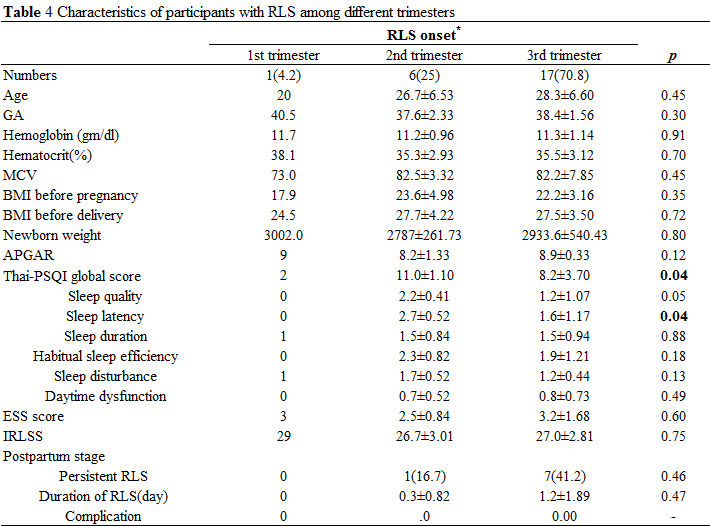Session Information
Date: Sunday, October 7, 2018
Session Title: Restless Legs Syndrome and Other Sleep Disorders
Session Time: 1:45pm-3:15pm
Location: Hall 3FG
Objective: This study was aimed to estimate the prevalence, natural history, and associated factors of Restless legs syndrome in pregnant Thai women.
Background: Restless legs syndrome (RLS) is a sleep-related neurological disorder that causes sleep disturbances and affects the quality of sleep. Pregnancy-related Restless legs syndrome has been proposed, but the natural history has not been cleared.
Methods: A cross-sectional study included 214 pregnant Thai women who attended Thammasat university hospital delivery unit was performed. The diagnosis of Restless legs syndrome was made according to the revised criteria of the International RLS Study Group (IRLSSG). General demographic data and antenatal care were reviewed. Epworth sleepiness scale, Pittsburgh sleep quality index, and restless legs syndrome rating scale were determined.
Results: A total of 24 pregnant women (11.2 %) were diagnosed with RLS; 4.2% of those reported the symptoms in the first trimester, 25% in the second trimester, and 70.8% in the third trimester. Multivariate analysis revealed that anemia was associated with RLS (p < 0.01). Anemia was a risk of developing RLS during pregnancy (OR, 5.44; 95 % CI, 2.02–14.65). Subjects with RLS significantly had higher ESS score (p < 0.01). All subjects with RLS had severe symptom severity according to the IRLSS, and the symptoms subsided within a week after delivery. There was no immediate labor and newborn complications associated with RLS.
Conclusions: Our study confirmed a high prevalence of RLS and its negative impacts on sleep in pregnant Thai women. Anemia was a risk factor of RLS during pregnancy. Furthermore, RLS is commonly found and more pronounced in the second to third trimesters of pregnancy and disappear within a few days after delivery.
References: Liu G, Li L, Zhang J, Xue R, Zhao X, Zhu K, et al. Restless legs syndrome and pregnancy or delivery complications in China: a representative survey. Sleep Med. 2016;17:158-62. Srivanitchapoom P, Pandey S, Hallett M. Restless legs syndrome and pregnancy: a review. Parkinsonism Relat Disord. 2014;20(7):716-22.
To cite this abstract in AMA style:
S. Panvatvanich, P. Lolekha. Restless Legs Syndrome in Pregnant Thai Women: Prevalence, Natural History, and Risk Factors [abstract]. Mov Disord. 2018; 33 (suppl 2). https://www.mdsabstracts.org/abstract/restless-legs-syndrome-in-pregnant-thai-women-prevalence-natural-history-and-risk-factors/. Accessed February 24, 2026.« Back to 2018 International Congress
MDS Abstracts - https://www.mdsabstracts.org/abstract/restless-legs-syndrome-in-pregnant-thai-women-prevalence-natural-history-and-risk-factors/



%20and%20ESS%20scores%20between%20RLS%20and%20Non%20RLS.gif)
